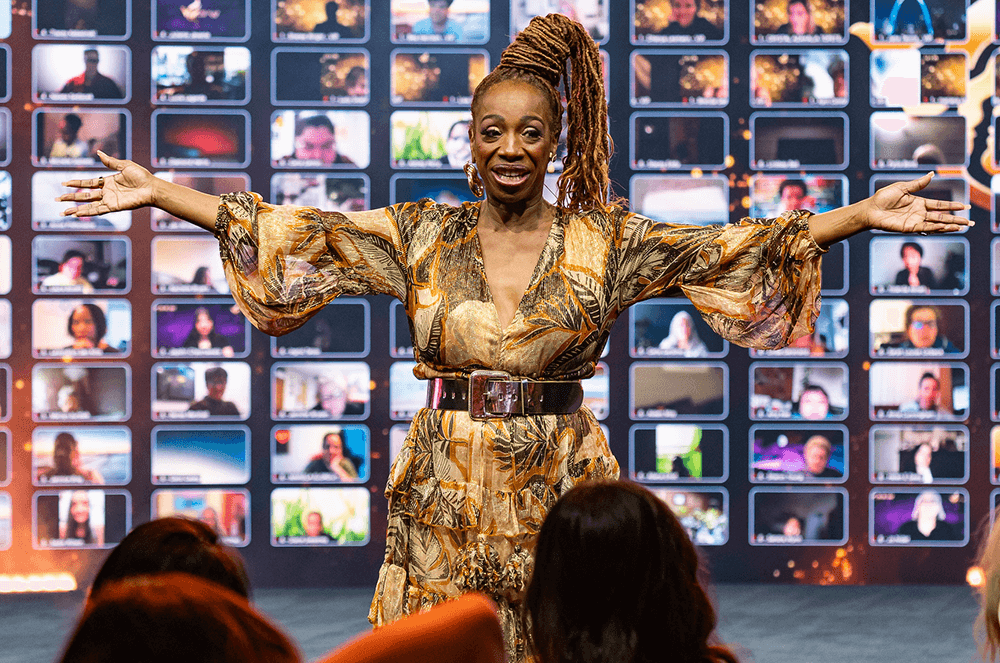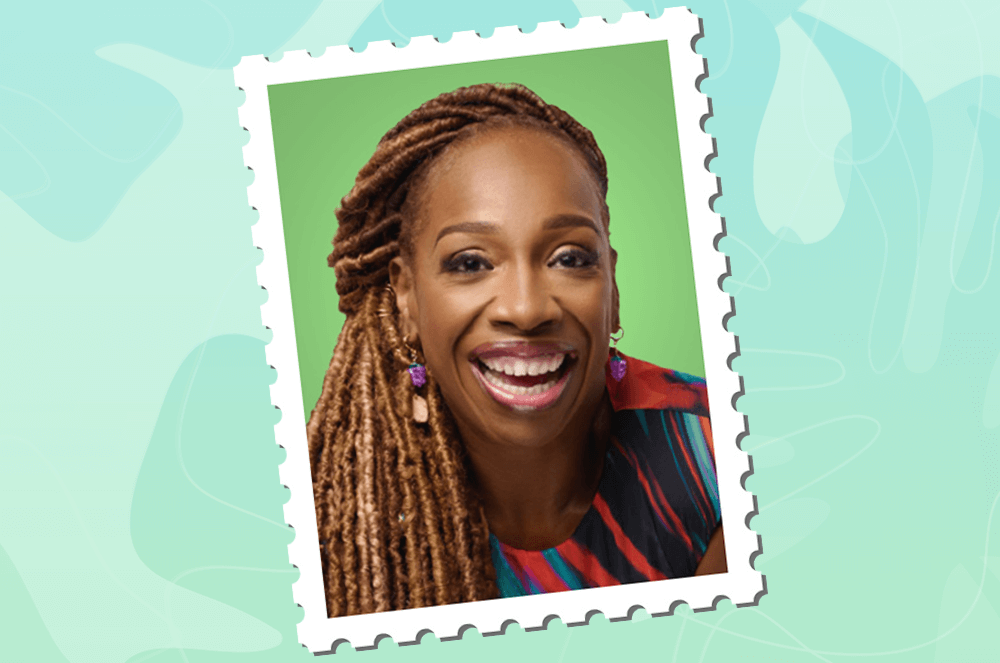
For the first four years of my business, I worked out of my walk-in closet. Today, as CEO of my own company and an international speaker, I can honestly say that my brand has made a global impact, something that still astonishes me. While I made huge mistakes early in my career as a business owner, my speaking ability saved me every time. Most of the techniques I teach today started as an unconscious competence of mine.
After decades of speaking professionally, numerous people encouraged me to teach the techniques that I inherently used each time I delivered a talk. I’ve been fortunate enough to have received global attention, earned a tsunami of business, and consistently had people requesting more of my message. I was told that other speakers would benefit from something that came naturally to me.
Creating this system took time, energy, and effort, but I knew that if I wanted people to truly understand the hidden formula to being unforgettable, something that not only had a significant impact on their audience, but also attracted national media attention and endless speaking invitations, then I needed to take the time to create a framework of my own that was unparalleled in its impact.
I want you to be just as unforgettable every time you speak, whether in your club, a boardroom, main stage, video, conference, or retreat. Just know that kind of impact rarely happens effortlessly. And the truth is, you CAN go from an average and ordinary speaker to an unforgettable presenter. I’ve seen it happen many, many times in my programs.

After spending seven days locked in my office like a mad scientist, I created the Science of Speaking—20 foundational and specialty techniques that serve as a “superpower” grab bag. When utilized individually or collectively, they can instantly increase your impact, and when mastered, make you unforgettable.
I’m excited to share a few foundational techniques that many speakers miss, causing them to also miss the opportunity to leave a lasting impression. When you apply even just these three of my 20 techniques, you will immediately feel more confident and have more impact.
Here are three of these techniques you can try right away:
Task and Maintenance –
You may have noticed that when most people speak, they tend to have a monologue versus a dialogue. It’s understandable, after all, they’re passionate about their content, and they can get so into it that they forget it’s actually a conversation.This “task” aspect of the technique is your awareness that 50% of your energy should be committed to the content, your time allotment, and agenda. The other 50% is what most speakers miss, and where you may also be losing your audience: “maintenance.”
Maintenance is your attention to the response of your audience, with the intention of utilizing their reactions to turn a monologue into a dialogue: You read and then play off their facial expressions, body language, and engagement. This adds an organic, unscripted angle of excitement to your speaking. You’re literally using their expressions as feedback, and making them a driving factor in how you deliver your message. You’ve most likely mastered “task,” but may rarely lean completely into task and maintenance simultaneously, however it’s a skill you can develop.
Audience Connection Formula (Me, We, You) –
This is a favorite among my students as it’s one of the easiest to implement, and has instant impact on your audience and their feeling of connection to you.This technique inserts you into the journey of growth and reaches out to your audience to find your shared experience, forming an instant bond of camaraderie between you and each person.
Me the Speaker – (Share a personal moment, look back at growth)
Say: “There was a time when I …”
We – (Speak so everyone in the room feels a connection)
Say: “We have a tendency to …”
You – (Ask one question that leads to a simple Yes, that’s me! I see myself!)
Say: “Have you ever …”
Example: There was a time when I wanted to take a leap of faith in my business, but I was too afraid. We have a tendency to want something greater for ourselves, but often fear taking the next step. Have you ever dreamed big but stayed stagnant?
One of the biggest gifts you can give your audience is the gift of positive disruption in your speech. Your ability to foster or be a champion for progressive development is what will set you apart from other speakers. It takes courage to maintain an inspiring and steady presence while delivering vulnerable, challenging, and/or transparent content.
The Valley –
You can apply this technique to any message or topic, and in front of any audience. It adds sizzle to any presentation, turns a dry message into an engaging one, and makes your audience feel like new friends. While your content may change, the style will be consistent, and lead to an impactful outcome.This technique is designed to create an immediate connection between you and your audience. It allows them to see the brilliance of who you are, provides a glimpse of a struggle that makes you human, and shares why you are the person they would want to work with, follow, or learn from.
Think of a valley; now consider the valley with three key points:
- Big You – Your big achievements stated in a very humble way. This is how people may see you before they know your entire story.
Example: “I’m still blown away that I’ve been able to achieve …” - Low Point – This is where listener loyalty is built through showing you’re a human, just like them. You share a low point in your life, a time when you faced a struggle, a limiting belief, or a pain you had to overcome.
Example: “What you may not know about me is that …” - Your Why – This is the lesson that you learned from your low point, and why you do what you do now—the struggles that turned into your strengths.
Example: “As a result of going through that, I now …” “The greatest lesson I learned was …”
The Valley technique is the most impactful superpower you can have as a speaker. It will take time and practice, as it incorporates many layers of techniques intertwined for best delivery. It’s the one technique that will reach out and grab your audience’s attention, connect to their souls, and make you an unforgettable speaker. The Valley is what has kicked open the most doors, created the most revenue, and has most often made me and many of my students go viral.
Speakers often mistakenly believe their graphics, website, PowerPoint, or marketing material need to be bigger, better, and brighter to make you a standout, but these tools and tactics actually have very little to do with you being memorable.
Believe it or not, it’s super easy to forget great visual presentations. On the other hand, YOU can be unforgettable. NO ONE can do you but you.
Here’s your opportunity and invitation to go deeper versus wider, by applying the Science of Speaking techniques to how you deliver your message. There is someone out there waiting, wanting, and needing to experience your everlasting impression.
I’d love to gift you with a bit more clarity on your journey. Take this free assessment to find out which techniques you have already developed, and the exact techniques that are still in your gap and space of opportunity to grow within.
Lisa Nichols is a world-renowned speaker, as well as a media personality and corporate CEO whose global platform reaches over 170 countries and serves over 80 million people. She was the keynote speaker at the Toastmasters 2023 International Convention. Her social media attracts over 2.4 million followers. Learn more at motivatingthemasses.com.
Related Articles

Presentation Skills
How to Rock Your Presentation

Presentation Skills



 Previous
Previous

 Previous Article
Previous Article
